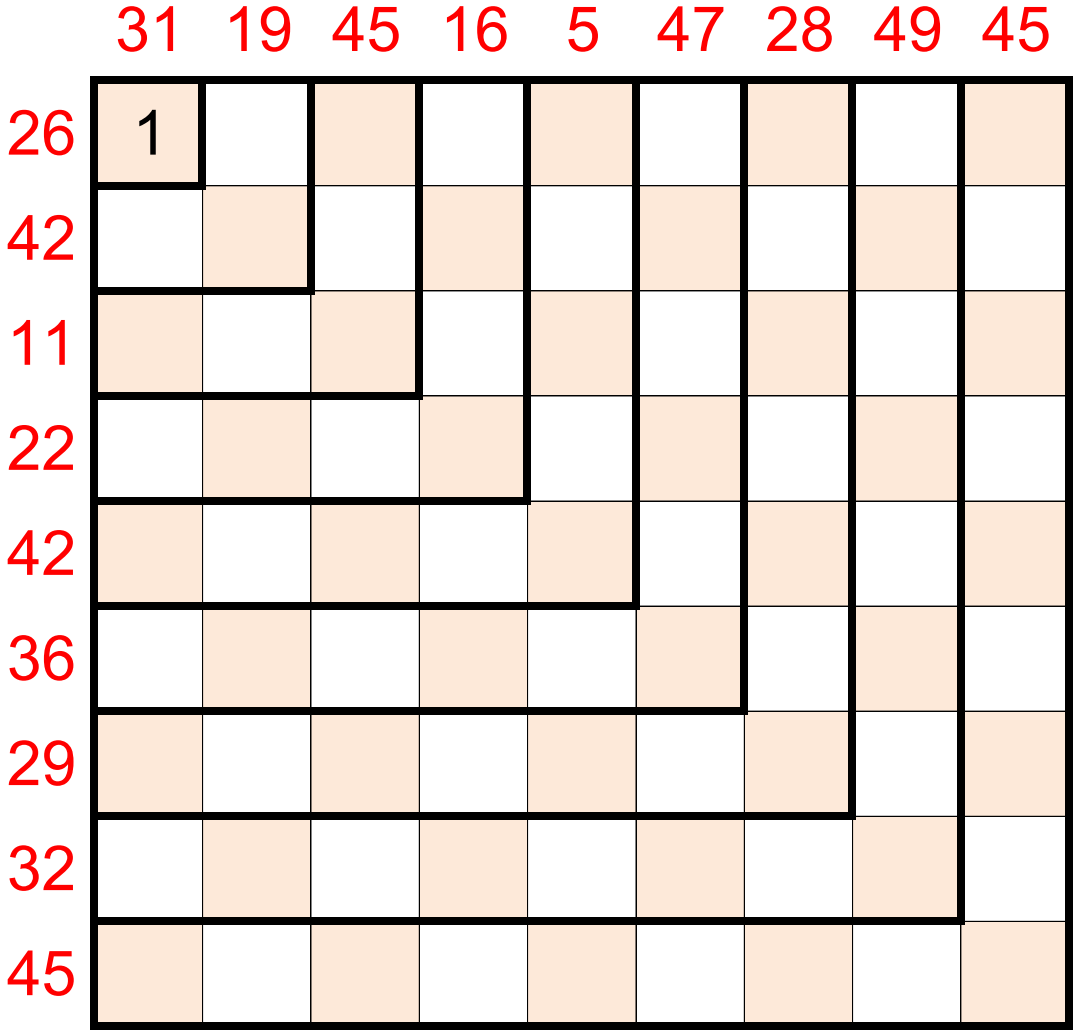Number hooks
In the grid below, enter nine 9’s in the outermost hook, eight 8’s in the next hook, then seven 7’s, six 6’s, and so on, down to the one 1 (already entered), so that the row and column sums match the values given along the border.

Solution
The code below provides the following solution to the above puzzle:
1 . 3 . . 6 7 . 9
2 2 3 . 5 6 7 8 9
3 . . . . . . 8 .
4 4 4 4 . 6 . . .
5 5 5 5 . 6 7 . 9
. . 6 . . 6 7 8 9
7 . 7 7 . . . 8 .
. 8 8 . . 8 . 8 .
9 . 9 . . 9 . 9 9
Python code
from z3 import *
def generate_hooks(size):
hooks = []
for n in range(1, size + 1):
hook = []
for i in range(n):
for j in range(n):
if i == n - 1 or j == n - 1:
hook.append((i, j))
hooks.append(hook)
return hooks
row_sums = [26, 42, 11, 22, 42, 36, 29, 32, 45]
col_sums = [31, 19, 45, 16, 5, 47, 28, 49, 45]
def solve_number_hook_puzzle():
solver = Solver()
# Create a 9x9 grid of integer variables
grid = [[Int(f"cell_{i}_{j}") for j in range(9)] for i in range(9)]
# Add constraints for row and column sums
for i in range(9):
solver.add(Sum(grid[i]) == row_sums[i])
solver.add(Sum([grid[j][i] for j in range(9)]) == col_sums[i])
# Generate hooks
hooks = generate_hooks(9)
# Add constraints for the hooks
for i, hook in enumerate(hooks):
value = i + 1 # Values from 1 to 9
cells_in_hook = [grid[r][c] for r, c in hook]
solver.add(Sum([If(cell == value, 1, 0) for cell in cells_in_hook]) == value)
for r, c in hook:
solver.add(Or(grid[r][c] == value, grid[r][c] == 0))
# Ensure all numbers are between 0 and 9 (0 for empty cells)
for row in grid:
for cell in row:
solver.add(And(cell >= 0, cell <= 9))
# Check if the puzzle is solvable
if solver.check() == sat:
model = solver.model()
return [[model.evaluate(grid[i][j]).as_long() for j in range(9)] for i in range(9)]
else:
return None
# Solve the puzzle
solution = solve_number_hook_puzzle()
# Print the solution
if solution:
for row in solution:
print(" ".join(map(lambda x: str(x) if x != 0 else '.', row)))
else:
print("No solution found.")